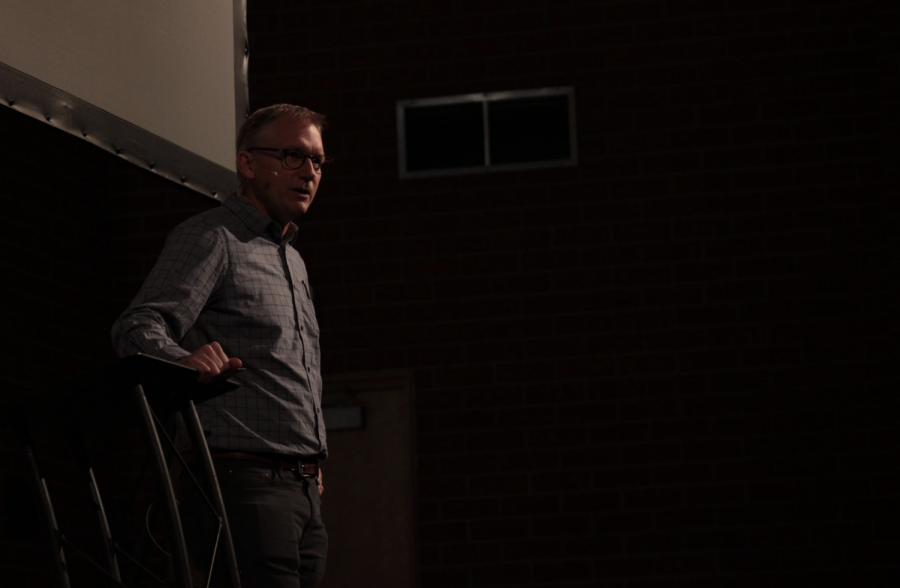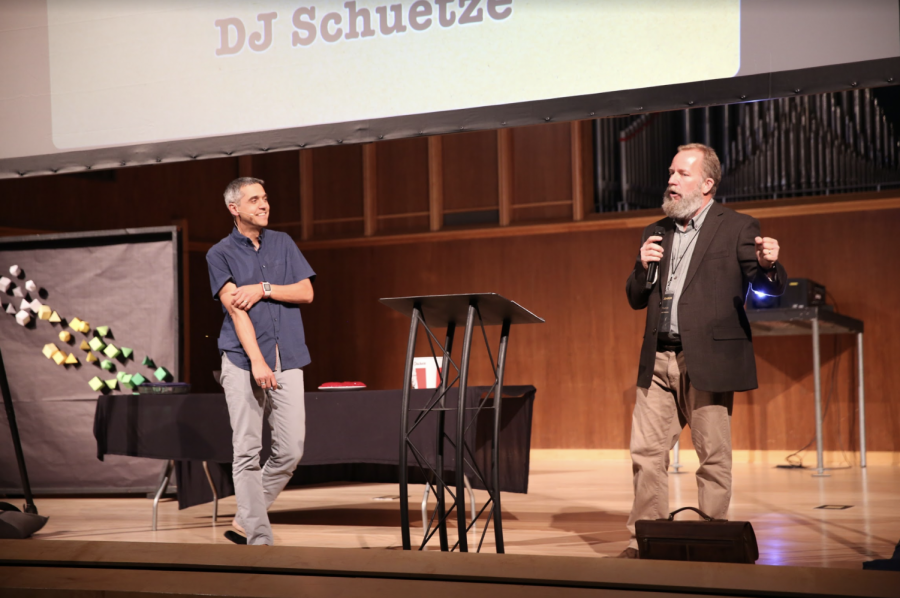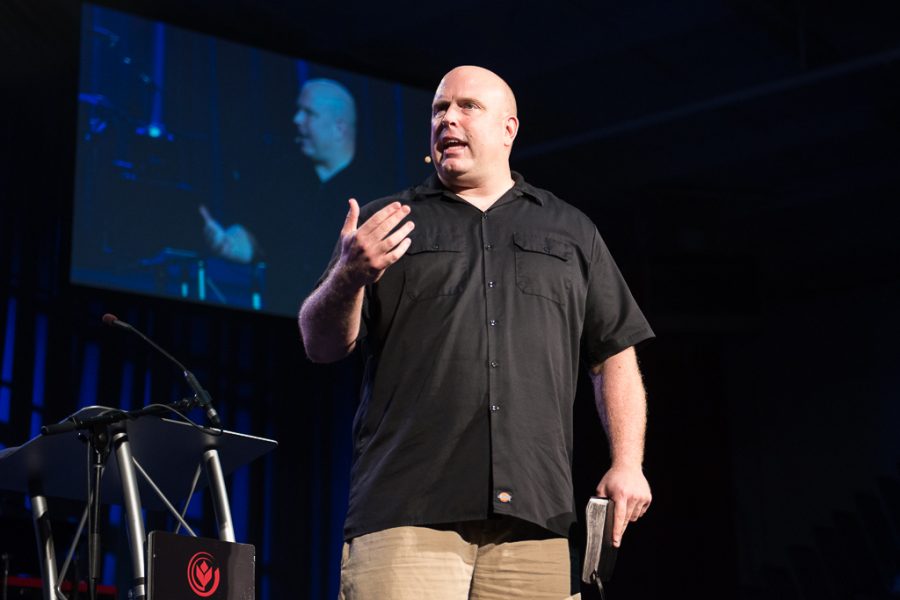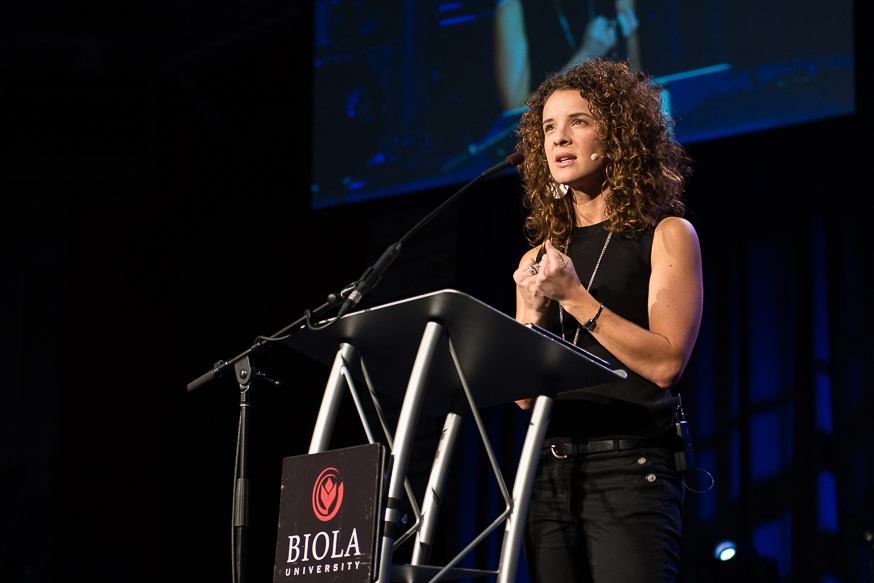The workshop on “Goodness, Truth, and Beauty” appealed to me because all three of these concepts are things I strive to have more of. When I think of goodness, I think of righteousness and being completely upstanding to biblical standards. When I think of truth, well, I don’t think of much. Truth is basically just black and white honesty, right? The Bible paints a pretty clear picture of truth that is probably impossible to argue with. For example, the Bible says Jesus is the Truth. Okay, no argument there. As Christians striving to be more like him, I’m pretty sure we’re all striving for truth as well. Then I think of beauty and my first reaction is: What does beauty have to do with goodness and truth? What does beauty have to do with Christianity or spreading the gospel?
That’s where Allen Yeh comes in. Little did I know that practically his whole message Thursday afternoon would be centered around those questions. Yes, he referenced verses, such as Luke 18:19 and John 14:6, if anybody wanted more information on goodness and truth, but Yeh definitely knew beauty would be the more interesting topic to discuss.
The workshop started on a little bit of a rough note as Yeh did not have his notes and the Powerpoint malfunctioned. But once the IT crew saved the day, Yeh dove into the very controversial questions and topic of beauty and its role in the Bible. His first question to us: “Do you think affirming beauty is a biblical concept?”
In a matter of seconds, students were breaking up into groups of two or three to ask each other this question. I couldn’t help but think that beauty had absolutely no place in the Bible. This very aggressive opinion came from my thoughts that beauty, in human terms and standards, has been completely tainted and flawed. I really didn’t understand why the Bible, or even God, would care about beauty.
I liked the way a new friend of mine, freshman Jaston Epp, put it. “I could see beauty being a godly concept, but I don’t know about a biblical concept.” Epp basically took the thoughts right out of my head. I believe that everything God created is beautiful. However, I don’t think it has anything to do with salvation or biblical importance. I just don’t see why or how affirming the beauty of a flower is a part of my salvation. I don’t really understand or see the need to recognize what is beautiful and maybe what is not.
When discussion opened up in the room, many students had different viewpoints than mine, and it really opened my eyes. There seemed to be a universal agreement among students that God creates beauty, therefore it is affirmed and is a biblical concept. This idea really made me see that I was thinking of beauty too much from my perspective and not enough from God’s. Yeh seemed to agree with the group’s decision, which just further affirmed that God probably does value beauty more than I thought. After all, he did create it. Why wouldn’t he value it?
This new enlightenment caused me to wonder then, why does God value beauty and what kind of beauty are we talking about? Of course, this was Yeh’s next discussion question. After sharing the verses Gen. 29:17, 1 Sam. 16:17, 1 Sam. 16:22, and Esther 2:7, that show why beauty is good, Yeh also shared the verses Prov. 31:30 and 1 Peter 3:3-4 to show why it isn’t very important. Yeh then asked the audience to think about and discuss the thought: “Obviously internal beauty is valued by God. How much should we value external beauty?”
This was the question that made my brain hurt. I just kept thinking about how many different standards and criteria there are for beauty! Everyone sees it differently. God has standards, humans have standards and every culture among humans has their own standards too. So how can we determine how we should value something that we can’t even define? When Dr. Yeh opened the floor for discussion once again, one student said something that really penetrated my heart and changed the way I not only look at beauty but everything. He said, “It should be valued as God values it.”
The answer was so simple, yet so true. I’m sure a lot of students were overthinking the question just like me and were forgetting that every answer is in God. Whenever we don’t know how to do something, we should just look to God. He should be our constant example. Verses such as 1 Samuel 16:17, Psalm 19:1, and Isaiah 53:2-3 show us different ways God looks at and values beauty.
After that simple, yet oh so astounding, answer to Yeh’s last discussion question, he concluded with the verse Ecclesiastes 3:11a which says, “He has made everything beautiful in its time.” That verse along with Yeh’s definition of beauty as “something that is made and used just for God’s purpose” was the perfect ending to an unexpectedly eye-opening workshop. Yeh’s definition really affirms the message in the Bible that each of us was created on purpose, with a purpose. We as God’s creations strive to glorify him by having goodness, truth and beauty.








